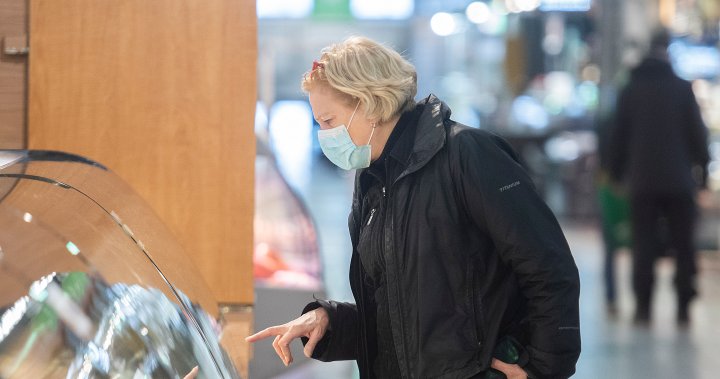A study out of Quebec aimed at countering online misinformation reveals that health measures taken by governments in connection with COVID-19 helped reduce hospital admissions and the number of cases of the virus back in 2020.
In a study published in 2023 in the American Journal of Preventive Medicine, Mohsen Farhadloo, assistant professor in the Department of Supply Chain Management and Business Technology at the John Molson School of Business, and James Peters, doctoral student at Concordia University, argue that measures put in place by governments around the world during the first wave of the COVID-19 pandemic “were generally effective in mitigating the impact of the health consequences of COVID-19.”
Ten non-pharmaceutical measures put in place between January and June 2020 were analyzed, such as face-covering, school and business closures, social distancing and travel restrictions.
The research consisted of a systematic review incorporating quantitative data from 44 studies around the world.
The aim was to comb through “research that has examined the effect of non-pharmaceutical interventions on certain aspects of health, such as the number of cases (of COVID-19), or the effect of interventions on hospital admissions or on the mortality rate of the population,” said Dr. Farhadloo in an interview with The Canadian Press.
Get the latest Health IQ news.
Sent to your email, every week.
The researchers noted that previous studies focused almost exclusively on reducing the mortality rate and wanted to rectify this: “It was important for us to consider not only the impact on mortality but also on cases and hospitalizations since these were relevant results of the pandemic,” added James Peters by e-mail.
According to Farhadloo, research focusing solely on one variable, namely the impact on mortality, can lead to erroneous conclusions.
Research results
The researchers’ results show that wearing a mask led to a reduction of 2.76 cases per 100,000 people, and a 0.19 per cent reduction in the mortality rate worldwide.
Travel restrictions reduced the rate of increase in the number of cases by 10 per cent and school closures by eight per cent, according to Farhadloo.
For Peters, the most surprising result of the study is the time between the announcement of a health measure and its concrete effects.
“For example, we found that containment measures led to a reduction of 2.9 cases of COVID-19 per 100,000 people, but these effects were not observed until four weeks after they were implemented,” he said.
According to the study, the closure of restaurants and bars also had effects, in terms of reductions in mortality, only after four weeks.
The researchers urge policymakers to consider this delay in the results when it comes to developing or evaluating these measures.
For the researchers, the results prove that the measures all had at least one impact in terms of reducing the number of cases, hospitalizations or deaths linked to COVID-19.
Countering misinformation
This research, launched in 2022, is “in response to existing misinformation about health on social networks,” said Farhadloo.
According to him, it is still very easy to contribute to misinformation online or even within scientific literature.
“It is crucial to raise public awareness of the prevalence of health-related misinformation, and it is important to understand that we need to provide the public with the means to be able to assess the quality of the health information they receive on social networks,” he said.
Farhadloo is now conducting research into the quality of health information on social network X, formerly Twitter.
© 2024 The Canadian Press




